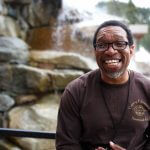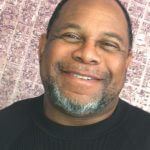Dianne Dillon-Ridgley
This interview was conducted by Carly Schmidt on February 4, 2022.
Transcript
You received the Compton Award at River Rally 2021. What have you been thinking about and reflecting on since last May?
In my least optimistic moments, it seems like there’s a fraying at the edges of the fabric of the country, as though there’s a desire to repeal everything since the Voting Rights Act and the mid-’60s legislative framework that really shifted our society towards being more equal and open. We thought we were getting comfortable with really being the country that the original words in our constitution and our origin documents promised.
And although we weren’t actually that country in the beginning, I think we should be proud–not too proud–but proud that over the first 200 years we really did make progress. One of the examples I bring up the most is that at the beginning of our country, women had very little access to any of the rights that America proclaims and touts around the world: liberty, freedom; women couldn’t own property, women didn’t have the franchise–and a whole host of other people didn’t either. So I hope we continue to look with a wide angle lens that’s broad enough for us to see what we can be, and let us not retreat to the lesser parts of what we have been.
What I’ve been considering seems to be–not abandoning any of the wonderful work that we’ve done around being more inclusive, on addressing frontline communities, from Flint to the pathogens that are in the communities in Alabama, or the impacts in rural and farming communities by the overuse of farm chemicals and factory farm operations–but there’s also, I think, a real challenge to our basic democratic system.
And, it’s important to note how many generations of people were forced or felt they were forced to live lives of being in hiding about who they were and their gender identity. My mother was a clinical psychologist and the subtext of how she dealt with her patients and clients was an understanding that we’ve always been complex beings, we’ve always had nuances, but we had a society that wasn’t reflecting that. To me, it’s all connected.
Where are you finding optimism, despite these challenges? Do you have any hopes for a path forward?
It’s a good thing that we’re recognizing the complexity and the nuances now; it allows for creativity. When we allow people to bloom, and that creativity to occur, then you have the possibility of far richer participation in society. Maybe we can address some of our technical challenges, improving sewage disposal, wastewater treatment, and more. If people aren’t hamstrung in terms of trying to find peace in their individual lives, they can focus that intellectual and creative energy on some of these other challenges that we have. This is just the way I’m built; having a world where people can feel loved and cared for and respected makes for better and happier way for us all to live, which then allows us to be more supportive and caring for other people.
You were recently selected for Howard University’s 2022 Outstanding Alumni Award. What does this award mean to you?
I was shocked. I didn’t even know I was nominated and I’m really honored. I remember at my own class’s commencement, I was so proud that we chose to honor Fannie Lou Hamer. She was an uncompromising solidly ethical person focused on the franchise–getting the right to vote–in Mississippi. People used to ask me, “Dianne why do you do all this stuff for human rights AND you do environmental work?” but I have never seen those as you have do one or the other. It’s not like saying you’re a veterinarian and you’re a ballet dancer. Human rights and the environment are connected. Fannie Lou Hamer was similar and has a quote that I use a lot and I just think is so powerful: “I’m sick and tired of being sick and tired.” I’m glad we honored her in her lifetime as she didn’t have the gift of lots of years–it may not have been in the doctor’s reports, but the reality was there were chemicals and other environmental harms she encountered in her life and in her community.
So I would be humbled to be able to lift up what Fannie Lou Hamer said. She also said it is so important to be honored by your own, and she was making the point that all she had done, the risks that they had taken–people in her circle had been lynched, had been fire-bombed–were necessary because if she didn’t do this now, who will?
The path that I have been on was made so much easier by those who risked so much more, and met challenges that were far greater. It’s about the continuum of addressing these challenges. And particularly in Black History Month, we need to lift up people like Fannie Lou Hamer, or W. E. B. Du Bois, or Shirley Chisholm. There’s so many people who spent their lives unwaveringly clear that their mission was to do the right thing–not just for themselves, not even just for their families or their immediate community, but across the border spectrum of humanity. Do the things that will help to make and relieve suffering and remove barriers. Contemporarily, it is people like Stacey Abrams, who just do the things that need to be done on behalf of humanity.
To me it really boils down to a love, a love of people. At the end of the day, that’s why we’re here, we’re here to take care of each other, to be kind to each other.
You’ve been involved in climate change work for over 40 years. What reflections do you have?
Carnegie asked me to do some videos this past summer, which haven’t been released yet, but one of the questions was “why do you think it’s taken so long to address climate change?” To me, climate change is the challenge that now faces us, because the problem was we failed to know how to live sustainably on Earth.
People keep looking for the silver bullet for climate change, but we already have so much knowledge, what we need to do is generate and trust the deep wisdom, the Indigenous wisdom, the things your mother and aunt and grandfather taught you, the “Grannynomics,” as Naomi Davis of Blacks in Green has said. There’s just so much creativity and possibility, and so much nascent love and goodness in us. I just wonder how is it that we can so easily overwhelm it with the latest shiny object, the latest silver bullet. Instead, let’s pause and really honor each generation.
Can you tell me more about this intergenerational thinking and what it means to you personally?
In 1991 I was co-chair at a UN meeting and we were introducing and describing ourselves. I had been a math major, so I thought of how to describe myself from a math perspective. If you think of our lives, individually, as a timeline of humanity, we are each a point on that graph. The genius is that there’s an infinite path, and maybe even more importantly, an infinite future. I’m here as a daughter, and a mother, but both lines extend out and I need to–and I hope to–with my time at the microphone and in the light, be able to make sure that the line going forward is nourished and is as enriched and supportive as it can be. That way, each of those future lines that come after me have what they need in order to make the decision to be part of the continuum going forward in a way that encourages, supports, and expands the agenda in the way that the Dorothy Heights, the Anna Julia Coopers, the Mary Church Terrells, the Ida B. Wells’s, the Mary McLeod Bethunes, these serious Black women, who labored long and hard to make sure that when I got around in the 1950s, there would be the opportunity for me to pick up their mantle. So it’s not even just standing on their shoulders, but it’s being connected to that work. If more of us were focused on that, we’d be in a better place.
What can River Network members specifically learn from this?
When I first began to meet the people who worked on rivers and watersheds around the country, I was really impressed by those who were volunteers, who because they loved a river or a particular stream, they spent their time, their money, their efforts over the years. There are such lessons to be learned from that level of dedication and commitment, from people like David Borden, or Sally Bethea in Atlanta with the Chattahoochee. People who are not looking for fame, not looking for accolades, in fact using their own resources, to care for water and for others. They understand that we are each other’s keepers. I really firmly believe that’s why we’re here: to be supportive and to support each other and to make it possible for each of us to live larger–not in terms of money, but living a rich spiritual life connected to people and being there for each other.
When Ken Margolis (former President of River Network) first asked me to come speak, he said, we’re a really wonderful group, with really wonderful people, and we want to do well, but we’re overwhelmingly white. I said, that’s not necessarily a bad thing; it’s just an incomplete thing. I think it’s important to say it that way. It gets back to the monocultures. Let’s work together and with each other, rather than in silos, or in the vestiges of legal isolation and structures that were intended to keep one set of people on top over another set of people.
Where do you turn to find joy?
I’m overall really encouraged and I refuse to be discouraged. Even if momentarily you get a little weary, go play with a three-year-old.You can’t spend an afternoon with a child you love, even on their worst day, and not realize there is just is a magic, and an energy that occurs. It is through that intergenerational connection that we are nourished and fed. I hope we learn to take the wisdom from those elders who came before and prepared the path for us, and that we engage with the transfer to those who are coming after, because we only each have a moment. Some of us get long moments, some of us get shorter moments; but the richness in those moments are like an explosion of joy. If you engage with a child, you understand why we’re doing this, and how we’re connected through the generations.
Any closing thoughts?
What I’m hoping to convey is that as gloomy and as hard as the pandemic has been, humans don’t go back, we go forward. It comes down to this quote from Arundhati Roy,
Historically, pandemics have forced humans to break with the past and imagine their world anew. This one is no different. It is a portal, a gateway between one world and the next.
We can choose to walk through it, dragging the carcasses of our prejudice and hatred, our avarice, our data banks and dead ideas, our dead rivers and smoky skies behind us. Or we can walk through lightly, with little luggage, ready to imagine another world. And ready to fight for it.
I think if we spend more time on the subtleties in the narrative, our interconnectedness, the ways in which we care for each other, I think we’d be a lot better off. We truly are a human family. We need to do more things that show that we understand that.
About
A lifelong advocate for human rights, female empowerment, and sustainability, Dianne made her first foray into the environmental field as a college intern during the early days of the Environmental Protection Agency. Since then, the Dallas-native has traveled around the globe promoting women’s rights and fighting for environmental sustainability. For nearly a decade, she served as the United Nations representative for the World YWCA, advocating for education and political access for women in international conferences and negotiations around the world. She attended the 1992 Earth Summit in Rio by appointment of the White House, followed by the 1997 UN General Assembly on the results of Rio, and the 2002 World Summit on Sustainable Development in South Africa – the only person to have participated on all three US delegations.
During the 1980s, Dianne served four terms as the president of the Association of Iowa Human Rights Agencies. In the late 1990s, she served as CEO of the Women’s Environment and Development Organization. From 1997 to 2014, she served on the board of Interface, Inc., the world’s largest manufacturer of modular carpet tiles and global leader of sustainable design. Since 2002 she has served as a member of the Board of Trustees for the Center for International Environmental Law. From 2005-2007, Dianne was River Network Board Chair, the first woman and African American to hold the role.







